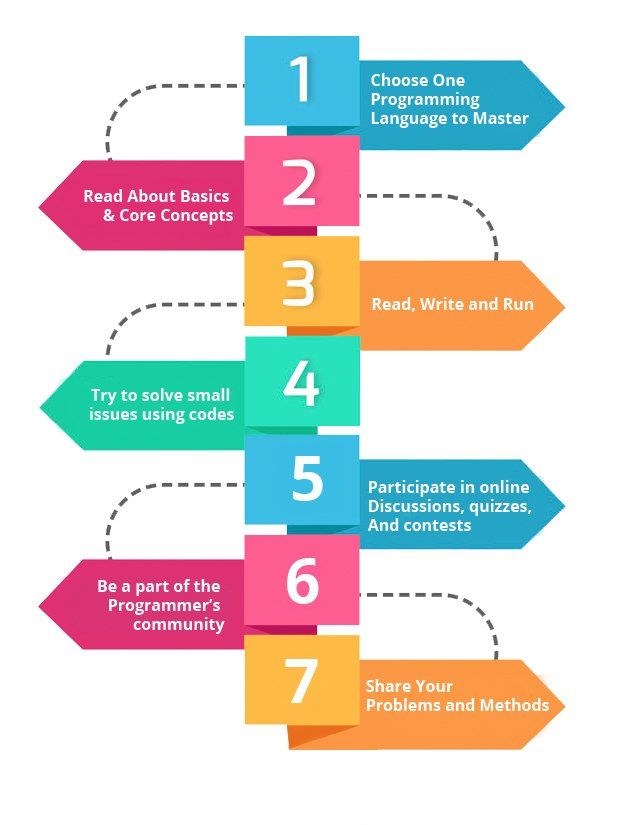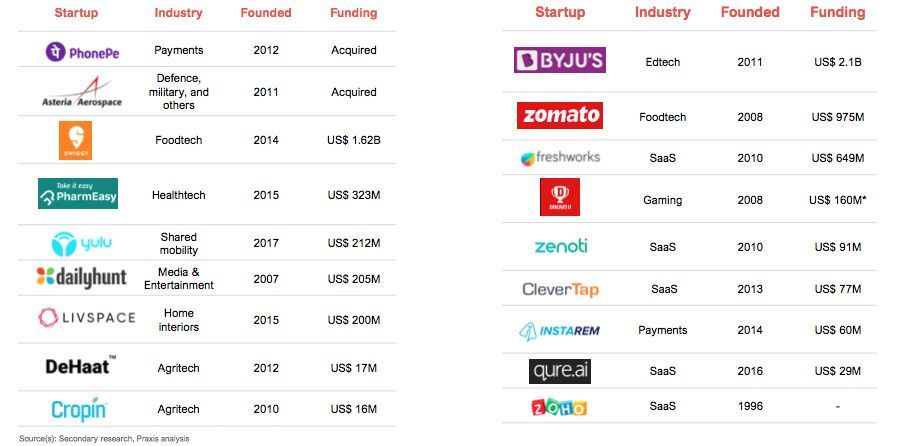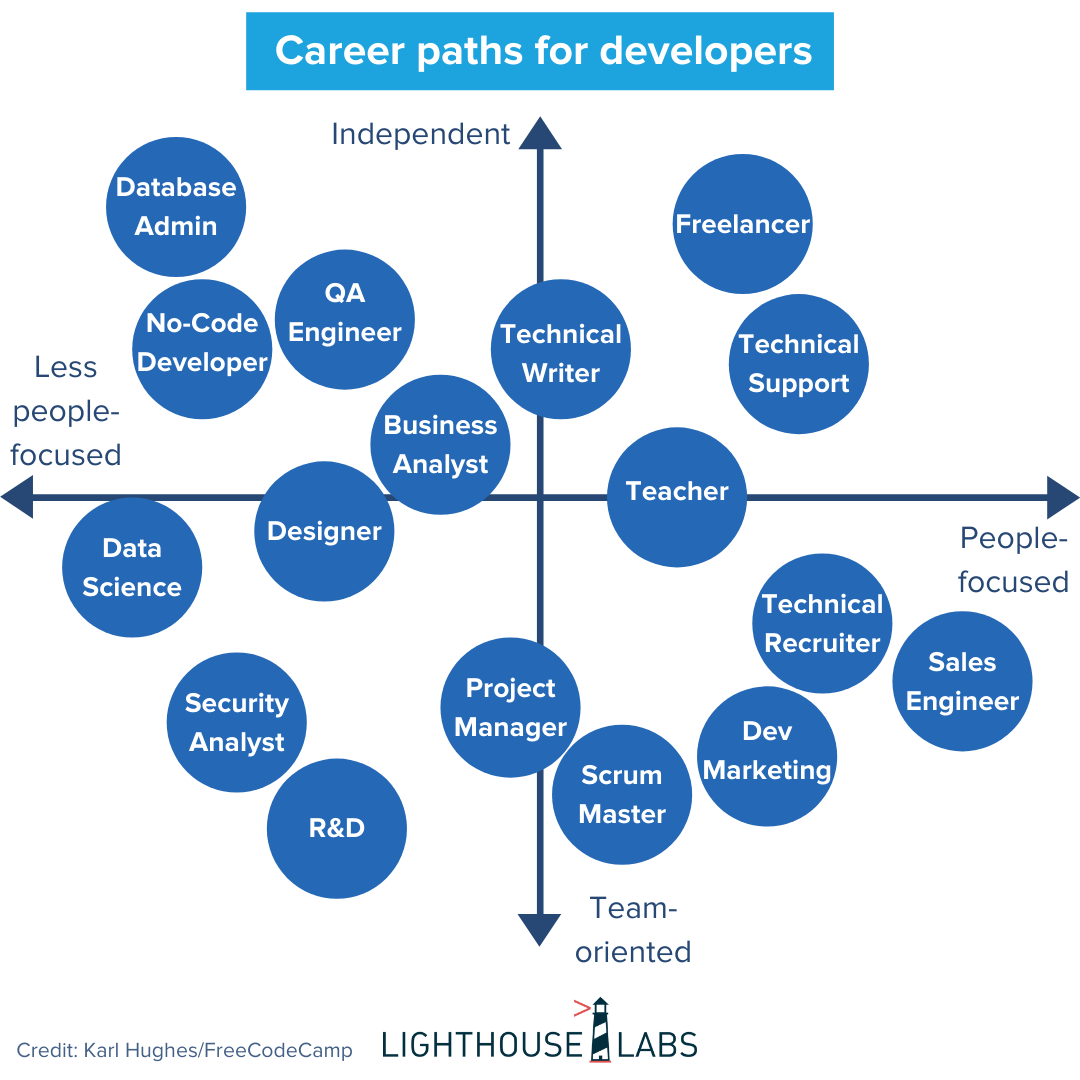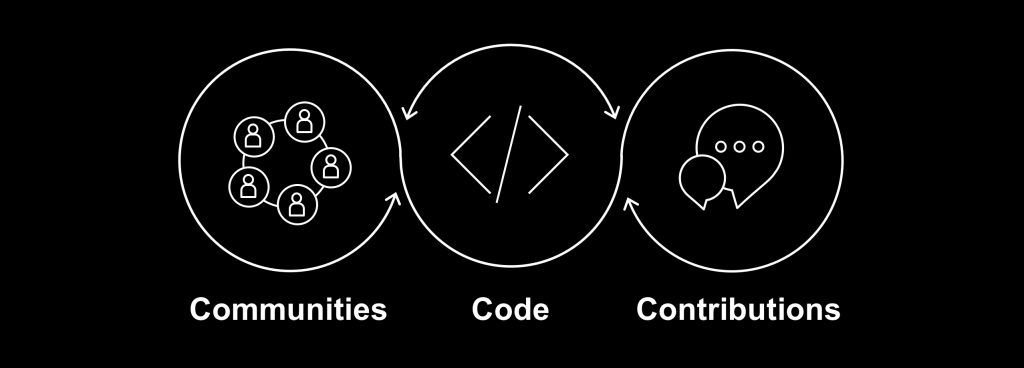9 Key Reasons Why You Should Learn Programming
The abstraction and methodical approach you adopt while writing code for a program allows you to think of a problem from different perspectives.

A phenomenon struck our planet roughly around 180 years ago and changed the face of the planet. No, we're not talking about the light bulb. Well, most of you know that story. Instead, we're talking about programming.
Now we talk about the word in very many contexts.
But, in a nutshell, programming is the set of instructions written using a programming language to perform a specific task by the computer.
To understand this better, let's say you have to make tea for a guest, you'll most likely:
1.) Boil milk
2.) Add tea leaves
3.) Add sugar
4.) Stir it for a while
And voila! Your tea is ready.
Here, you performed a task using the instructions written in the English language.
Similarly, to communicate the steps to a computer, we use programming languages.
With programming, we can accomplish astounding feats that would otherwise be either manual or outright impossible. From a messaging app to biometric sensors, from video games to food delivery services, everything is run by software today. We're already deeply immersed in the world of programming and a world without it is unimaginable now.
After the first high-level programming language Plankalkül developed by Konrad Zuse between 1942 and 1945, we've come a long way.
Doesn't it make perfect sense to understand what’s running our lives? Shouldn't we learn to program?
If you still aren't bothered a bit by it, here are 9 other important reasons why you should learn programming:
1.) Opportunity for innovation
Oil ran the world in the 19th century and most parts of the 20th century. Big businesses were built on oil that solved big problems across the world. You must have heard of the industrial revolution that changed the planet.
Today, the world runs on programming. Almost all the big corporations such as the likes of Google, Amazon, Facebook, etc. can vouch for that. Even traditional businesses like Walmart have adopted technology to stay relevant.
The scope for innovation in programming is unmatched. Do you want food delivered to your door? There's an app for it. Do you want to find a date for yourself? There's another app for it. Do you want automated cars? They’re being built by AI programming.

Basically, it is the gateway to solving most people's problems. If you understand its fundamentals, you can map the solution for a certain problem, or better build the solution.
You can innovate for the world, and for the upcoming generations. It gives you the opportunity to digitize your ideas.
Surely, you can pay a developer to turn your problem-solving idea into reality, but being a programmer yourself, you can either build the solution yourself or lead the team in a better way.
2.) Develop Problem-Solving Skills
This is one of the biggest benefits of learning programming. The abstraction and methodical approach you adopt while writing code for a program allows you to think of a problem from different perspectives. Programming develops structured and creative thinking.

For example, in Data structures and Algorithms you learn how to better search and sort the data, what structure could be used to store the data, what process should we employ to perform a certain task, etc. All these learnings help you to efficiently solve real-world problems in your personal and professional life as well.
3.) Understand the world around you
As we mentioned, we're surrounded by the applications of programming. From the various devices, we use like smartphones, laptops, smart watches, etc. to the various programs and applications we work on. Don't you get curious about how all of these work?
Have you realized how it is possible to transfer vast amounts of money by clicking on a button? Learning how to program will give you clarity about what happens backstage.
How does a particular platform, say Instagram work? You'll be able to reverse-engineer the thought process behind the developments that go on in the world in the field of tech. Once you understand all of this magic, you will be able to create one too.
4.) Improve your logic and reasoning skills
Writing logical code with a known cause-and-effect relationship is a must for programming in order to produce a trustworthy and well-organized outcome.
You learn where you may have unintentionally introduced bugs into the code and how to locate and correct them. You must dissect a piece of code into its component pieces and take the entire piece of code into account in order to find these problems.
Other real-world circumstances can benefit from this kind of logical reasoning.
5.) Build Perseverance
Albert Einstein famously said, “It’s not that I’m so smart, it’s just that I stay with problems longer.” This underlines the importance of perseverance. It’s considered to be even more important than talent or IQ in many spheres.
And you know what develops tremendous perseverance? - Coding.
People often debate whether soft skills like grit and resilience can be taught or not. With hundreds of lines of code, multiple errors, debugging, and backtracking to check for more errors before finishing a project, perseverance becomes a by-product of programming.
Think about it, you’ve shed all your sweat and tears to complete a project and yet it’s not functional. You come to know that there might still be errors in your code. Finding those errors and debugging them is an uphill task. Sometimes, it’s a missing semicolon in java that make the project work flawlessly.

Long hours of programming get you equipped with the ability to bounce back and keep a positive mindset despite the challenges.
6.) Build your own startup/business
Remember when we mentioned that most startups and businesses today are tech-based? And those who aren’t, have to have tech support in one way or another.
So, do you have an idea that could solve a problem? And it doesn’t even have to be as big as Google or Facebook. You can identify a simple problem statement and turn it into a tech startup.
Case in point, Calendly is a useful platform that solves a really basic problem of scheduling meetings and back-and-forth emails to execute the meeting. It’s a scheduling automation platform with multiple features in one place such as routing forms, availability preferences, meeting polls, etc.
Similarly, there are many SaaS tools like Trello, Elink, and Buffer that solve simple challenges like task management, content curation, and social media management catering to users from various fields of work, and thus enhancing their productivity.
In fact, there is software now that can turn vast scripts into speech in your voice or provide 10 different suggestions for one copy.
If you have good programming knowledge, you can also create simple yet innovative solutions for the masses and build a successful business out of it, without having to employ a developer.

Programming gives you the insights/ability to think and structure a solution for the problem statement you’ve identified.
No doubt, most founders & CEOs today come from a programming background, they can understand the fundamentals of their product and think of ways to upgrade it.
7.) Understand both sides of the business
This is a vastly underrated point that many professionals ignore.
In any type of organization or industry, it is always challenging for non-programmers or departments that have nothing to do with coding to comprehend the entire procedure that is necessary to get the work done.
Even if you’re working in a non-tech role, understanding the basics of programming will help you understand your product much better. Say you’re a marketer, and you regularly interact with the users and collect their feedback and pain points.
If you know how to code, you can at least visualize the risks and challenges from an engineer’s perspective. You can even convey possible solutions to the tech team in team meetings and earn brownie points from the top-level management.
For instance- Knowing HTML, CSS basics can help you launch better email marketing campaigns.
8.) Career opportunity & job flexibility
Since the world is running on tech, there’s no denying that programmers and developers are among the most sought-after and paid professionals. As the industry develops and newer products and services erupt, the demand for IT professionals is only going to soar. Computer science majors start out with a 71% greater beginning income than social science and arts majors.
In India, the average salary for a software developer stands at INR 7 LPA. And there’s no shortage of opportunities either. According to LinkedIn, there are 70,000-80,000 job vacancies for various programming roles such as software engineer, frontend developer, data engineer, IT analyst, full-stack developer, and many more.

Generally speaking, having programming skills might make you a more desirable candidate overall, giving you more flexibility in the job market.
When compared to other candidates, your CV might frequently benefit from stronger programming skills. Even if the position you're applying for doesn't involve programming, you may still use your talents to suggest other ways you could benefit your potential company and show your commitment to growth.
Moreover, programmers also have the flexibility to choose the type of work they’re interested in and the location they want to work from. Recent trends suggest that a vast number of tech professionals are working either remotely or from home.
Another benefit of learning computer programming is that you can easily switch between various roles once you have understood the base layers of technology.
Even without a degree, you can improve your resume by obtaining certificates or diplomas.
9.) Be a part of an International community
The technology industry has long supported community learning, which has been helpful for the majority of aspiring programmers and software developers.
Programming is a universal language, and there are many different computer codes in use worldwide across a wide range of businesses and applications.
If you’re a programmer, or even if you’re just beginning, you can interact with thousands of established industry developers and share ideas, perspectives, and solutions on platforms like GitHub, Stack Overflow, Dev.to, among many others.
You can take inspiration from programmers of other countries on how they’re solving certain problems, and try to customize it for your own place. Who knows, you might even collaborate with them on new ventures.

Additionally, if you have acquired good programming skills, you can contribute to open-source projects to modify existing software and be a part of an open community which in turn can lead you to worthwhile opportunities.
Final Thoughts
So, these were the 9 primary reasons why you should consider learning programming, irrespective of your educational background.
We’ve seen Michelin-star Chefs turning into full-stack developers at Masai.
Programming is undoubtedly one of the most in-demand careers today, that will lead you to a career full of constant learning and evolution as an individual.
What other motives do you need?
If you’re looking to switch to a career in tech, refer to this step-by-step guide.
Also, check out our full-time and part-time courses in full-stack web development where you’ll learn coding and DSA from scratch and become capable of bagging a professional software developer job in 30 weeks.
Note: These courses operate on a pay-after-placement model which means you pay nothing until you get placed for a CTC of INR 5 LPA or more.
Cheers and happy learning!

